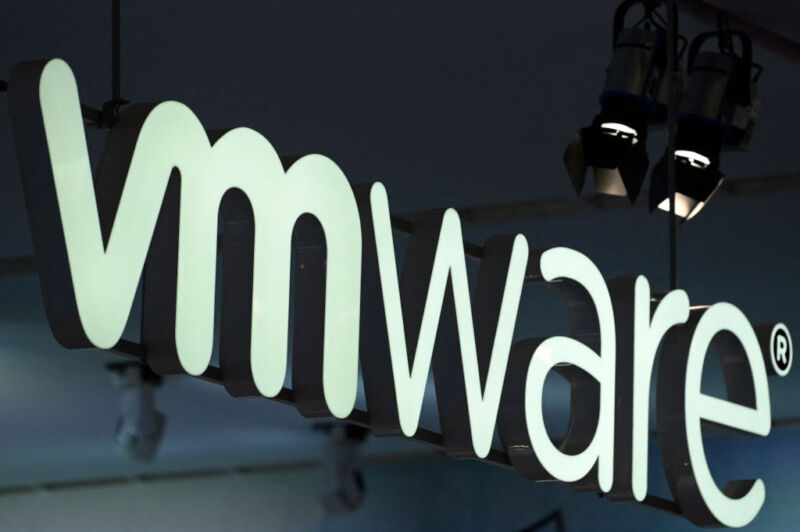
Broadcom CEO Hock Tan this week publicized some concessions aimed at helping customers and partners ease into VMware’s recent business model changes. Tan reiterated that the controversial changes, like the end of perpetual licensing, aren’t going away. But amid questioning from antitrust officials in the European Union (EU), Tan announced that the company has already given support extensions for some VMware perpetual license holders.
Broadcom closed its $69 billion VMware acquisition in November. One of its first moves was ending VMware perpetual license sales in favor of subscriptions. Since December, Broadcom also hasn’t sold Support and Subscription renewals for VMware perpetual licenses.
In a blog post on Monday, Tan admitted that this shift requires “a change in the timing of customers’ expenditures and the balance of those expenditures between capital and operating spending.” As a result, Broadcom has “given support extensions to many customers who came up for renewal while these changes were rolling out.” Tan didn’t specify how Broadcom determined who is eligible for an extension or for how long. However, the executive’s blog is the first time Broadcom has announced such extensions and opens the door to more extension requests.
Tan also announced free access to zero-day security patches for supported versions of vSphere to “ensure that customers whose maintenance and support contracts have expired and choose to not continue on one of our subscription offerings are able to use perpetual licenses in a safe and secure fashion.” Tan said other VMware offerings would also receive this concession but didn’t say which or when.
Antitrust concerns in the EU
The news follows Broadcom being questioned by EU antitrust regulators. In late March, MLex said that a European Commission spokesperson had contacted Broadcom for questioning because the commission “received information suggesting that Broadcom is changing the conditions of VMware’s software licensing and support.” Reuters confirmed the news on Monday, the same day Tan posted his blog. Tan didn’t specify if his blog post was related to the EU probing. Broadcom moving VMware to a subscription model was one of the allegations that led to EU officials’ probe, MLex said last month. It’s unclear what, if anything, will follow the questioning.
Tan said this week that VMware’s plan to move to a subscription model started in 2018 (he previously said the plans started to “accelerate in 2019”) before Broadcom’s acquisition. He has argued that the transition ultimately occurred later than most competitors.
The Commission previously approved Broadcom’s VMware purchase in July after a separate antitrust investigation.
However, various European trade groups, including Beltug, a Belgian CIO trade group, and the CIO Platform Nederland association for CIOs and CDOs, wrote a letter (PDF) to the European Commission on March 28, requesting that the Commission “take appropriate action” against Broadcom, which it accused of implementing VMware business practices that resulted in “steeply increased prices,” “non-fulfillment of previous contractual agreements,” and Broadcom “refusing to maintain security conditions for perpetual licenses.”
Partner worries
VMware channel partners and customers have also criticized Broadcom’s VMware for seemingly having less interest in doing business with smaller businesses. The company previously announced that it is killing the VMware Cloud Services Provider (CSP) partner program. The Palo Alto-headquartered firm originally said that CSPs may be invited to the Broadcom Expert Advantage Partner Program. However, reported minimum core requirements seemed to outprice small firms; in February, some small managed service providers claimed that the price of doing VMware business would increase tenfold under the new structure.
Small CSPs will be able to white-label offerings from larger CSPs that qualified for Broadcom’s Premier or Pinnacle partner program tiers as of April 30, when VMware’s CSP partner program shutters. But in the meantime, Broadcom “will continue existing operations” small CSPs “under modified monthly billing arrangements until the white-label offers are available,” Tan said, adding that the move is about ensuring that “there is continuity of service for this smaller partner group.”
However, some channel partners accessing VMware offerings through larger partners remain worried about the future. CRN spoke with an anonymous channel partner selling VMware through Hewlett Packard Enterprise (HPE), which said that more than half of its VMware customers “have reached out to say they are concerned and they want to be aware of alternatives.”
Another unnamed HPE partner told CRN that Broadcom’s perceived prioritization of “the “bigger, more profitable customers, is sensible but “leaves a lot of people in the lurch.”
Broadcom didn’t respond to Ars’ request for comment.




















+ There are no comments
Add yours